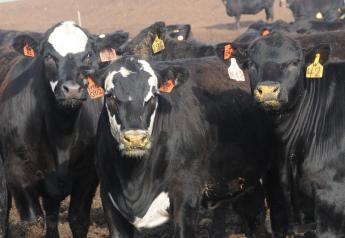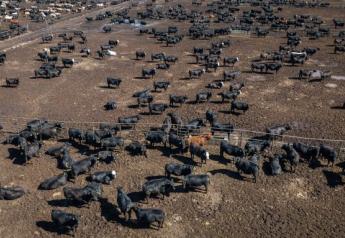Gray Wolf Remains on Endangered Species List, Court Reinstates Protection

The gray wolf had its protection reinstated by the U.S. Court of Appeals in Washington, D.C. on August 1. The court maintained a ruling by a lower court that the U.S. Fish and Wildlife Service (USFWS) doesn’t have the power to delist species from the Federal Endangered Species List.
In 2011, USFWS delisted gray wolves in the Great Lakes region that is composed primarily of Minnesota, Michigan and Wisconsin, while including parts of Illinois, Indiana, Iowa, North Dakota and South Dakota. The gray wolf had been delisted in that area because populations had increased to an estimated count of 3,765 wolves.
The court ruling says, “when a species is already listed, the service cannot review a single segment with blinders on, ignoring the continuing status of the species’ remnant.”
The ruling went onto say the USFWS, “failed to reasonably analyze or consider two significant aspects of the rule — the impacts of partial delisting and of historical range loss on the already-listed species.”
The Humane Society of the U.S. (HSUS) filed a lawsuit in 2014 to challenge this decision by USFWS leading to this latest ruling by the U.S. Court of Appeals.
A number of agriculture industry groups were not pleased with the court’s ruling. American Farm Bureau Federation President Zippy Duvall says the ruling defies common sense and threatens the livelihoods of farmers and ranchers in the Great Lakes region.
“The court handed down this opinion despite an abundance of scientific and commercial data showing no material threat to the wolf population. Neither the goals outlined in various recovery plans nor the aggressive and successful leadership to save the wolves in affected states moved the court to do the right thing,” Duvall says.
Ethan Lane, executive director of the Public Lands Council and National Cattlemen's Beef Association federal lands, believes the ruling will be detrimental to livestock producers who operate in gray wolf territory.
“Rather than celebrating the successful recovery of this species, Minnesota, Michigan, and Wisconsin will continue to be held hostage to the whims of radical environmental activists,” Lane says.
Both Duvall and Lane think Congress needs to address the issue.
“It is now incumbent upon Congress to take action to carry out the proper delisting of the gray wolf and modernize the Endangered Species Act so that it works for every American, not just well-funded judicial activists,” Lane says.
“Congress needs to take action to reform the broken and outdated Endangered Species Act. There’s no question the wolf packs have recovered. We only wish we could say the same of farms and ranches within their reach,” Duvall adds.
Meanwhile, animal rights groups are pleased with the ruling.
“A federal appeals court has recognized that the basis for the delisting decision was flawed,” says Jonathan Lovvorn, senior vice president and chief counsel for animal protection litigation at HSUS. “Congress should respect the ruling relating to the management of wolves in the Great Lakes and allow the Fish and Wildlife Service to re-examine the broader conservation questions raised by the courts.”
Currently there are Republicans and Democrats in Congress who are drawing up a law that could amend the Endangered Species Act, effectively rolling back protections in areas, like the Great Lakes’ gray wolf region, where wildlife populations have recovered.
Last week the Senate Environment and Public Works Committee passed the Hunting Heritage and Environmental Legacy Preservation for Wildlife Act, it included a provision to delist gray wolves and doesn’t allow judicial review.







